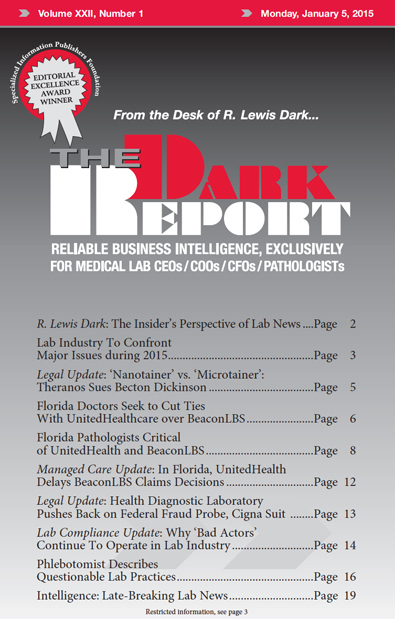CEO SUMMARY: While working in the office of a physician who was a client of Health Diagnostic Laboratory, a phlebotomist says he was instructed to write the same 10 diagnoses on every test requisition a doctor sent to HDL, a lab company in Richmond, Virginia. HDL is under federal investigation, according to published reports. The same 10 diagnoses were recorded for every patient even though some of these tests were appropriate only for women, the source said.
To access this post, you must purchase The Dark Report.


